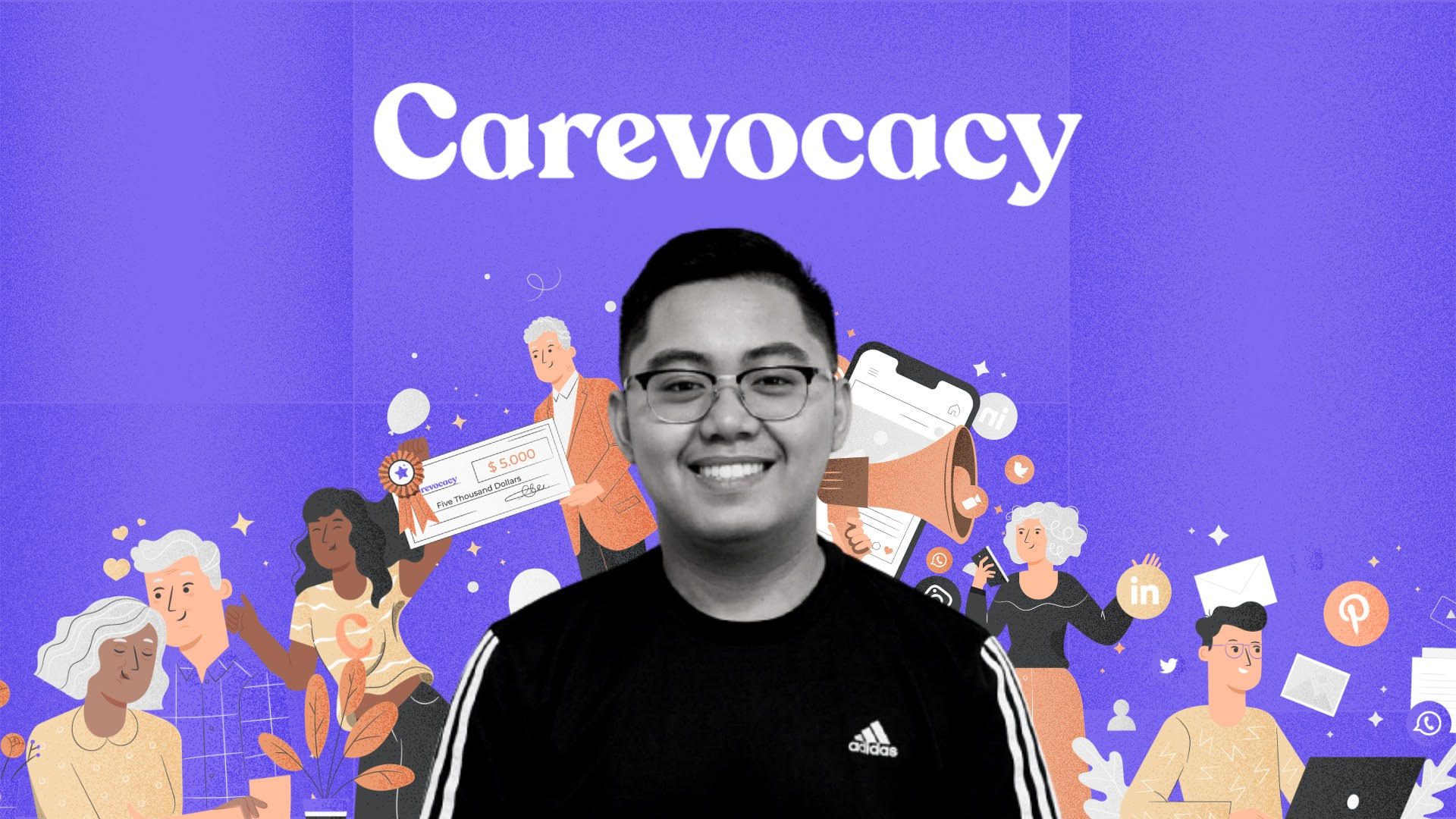The senior-care industry is one of the most prominent industries in Florida because of its mythos as a retirement destination. Though we’ve seen companies like Papa disrupting the industry with new business models for homecare services, there is an unlikely champion on the rise helping seniors stay up to date with modern technology services right here in South Florida.
Nova Southeastern University student Stefano Selorio is the founder and CEO of Carevocacy, a company bringing older adults into the age of tech through a learning platform where they receive live classes about technology to stay connected, stay social, and learn new skills.
He started the company as a result of his own experience taking care of his grandmother with Alzheimers after leaving a well-paying job. “That experience inspired me to build solutions for the aging population to learn new technology trends and use it to engage with modern services, meet new people, and give them opportunities they didn’t have before.”
When Selorio first started building the company in 2020, he set out to create an on-demand homecare platform for seniors, but later pivoted into an educational platform after realizing how many questions seniors had about using modern technology services like online stores, ride sharing, and food delivery, to name a few.
Despite what people might assume of Selorio as a young Filipino founder in the “Age Tech” industry, Carevocacy has shattered expectations. The company placed first among 20 different startup ideas in the Kauffman Fastrac program in Hollywood, FL in 2019, and also won second place in the Venture Bites Pitch Competition earlier this year.
Selorio’s enthusiasm for the care and advocacy of seniors in a digital age is especially infectious when he talks about the impact Carevocacy has had on existing customers. For example, a senior named Mary who was on the platform loves writing poetry every single day, and she even had a book on Amazon but she was unsure whether people would buy it. Through Carevocacy’s service, she found the confidence to publish her poetry on a blog and monetize her book. She was 79 years old at the time.
“A lot of older adults want to become the next influencers,” says Selorio, alluding to the potential that activating older adults to use modern technology could have on in their individuals lives and the lives of those close to them.
The company is expanding through partnerships with lifelong learning institutions at local universities, where there remains great opportunity to develop curriculums for technology education for seniors. Though the platform is presently focused on one-on-one education sessions, he sees Carevocacy evolving as a complimentary service for senior care providers across the industry.
“The real work I do isn’t even actually getting them on Zoom or teaching them how to use Technology,” says Selorio. “The real work here is building them up and making them feel empowered, because typically the power dynamic would be different: grandparents generally give you wisdom and guidance about life, but in this case I get to be that person to them about technology.”
The field of age tech is not without its challenges. Seniors are especially vulnerable to abuse and fraud, with the FBI reporting that they can rack up to $3 billion in losses annually. What’s more, the growing pervasiveness of technology in daily life and service delivery can pose unexpected barriers to autonomy and independence for seniors. In light of these challenges, Selorio urges the community to “get rid of the idea that seniors are weak and fragile” and that we need to “recognize founders and problem solvers pushing the age tech space.”
Selorio hopes that his work not only raises the quality of life, autonomy, and self-determination of seniors in the digital age, but also sparks conversations about how we can keep our aging population integrated with modern systems and services.
Meet the young founder teaching seniors about modern technology

Latest posts by Livio Zanardo (see all)



